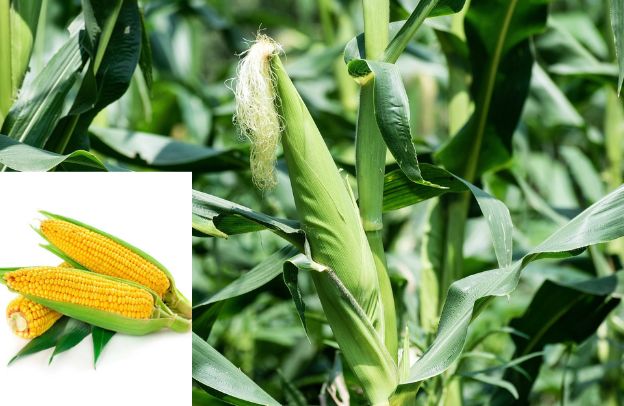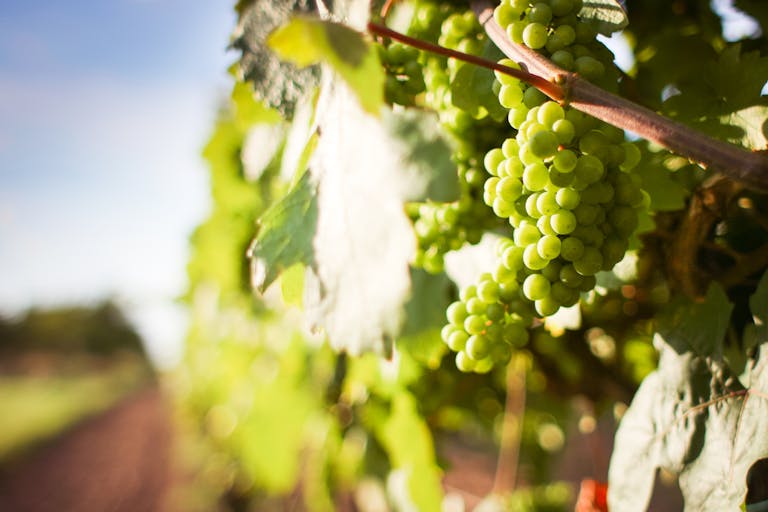Leveraging Nigeria’s Agricultural Potential: How Diaspora Entrepreneurs Can Transform Maize Farming into a Thriving Global Industry

Are you ready to be part of a revolution that transforms Africa’s agricultural landscape? Imagine turning maize, a staple crop, into a powerhouse of economic growth, food security, and sustainable practices. Nigeria, with its fertile land and vast potential, is already one of Africa’s largest producers of maize.
Join AClasses Academy today and learn how to turn Africa’s agricultural potential into your entrepreneurial success story
But despite these advantages, the country’s maize production remains inefficient and underdeveloped. A combination of challenges such as pests, erratic rainfall due to climate change, and underinvestment continues to limit the crop’s potential. This is where you, as a diaspora entrepreneur, can play a transformative role.
Leveraging your experience, knowledge, and global connections, you can help Nigeria’s agricultural sector reach its full potential. The question is: Are you ready to seize this opportunity?
Maize in Nigeria: The Potential and Challenges
Nigeria’s maize industry holds immense potential. In 2022, Nigeria produced over 10 million tons of maize, making it one of the leading producers in Africa (FAO). Maize is a staple food for millions, contributing to the diets and economies of many communities. Yet, despite its importance, Nigeria’s maize industry faces significant challenges.
Challenges in Nigerian Maize Production
Maize production in Nigeria faces a range of pressing challenges that threaten both crop yields and food security. The invasive Fall Armyworm, which has devastated maize crops across the country, causes significant losses, sometimes reaching up to 30% in affected regions. Additionally, the impact of climate change, with unpredictable rainfall and altered growth cycles, has made maize cultivation increasingly unreliable.
Coupled with inadequate infrastructure, poor storage facilities, and limited market access, these obstacles hinder farmers’ ability to maximize their productivity and income. Addressing these issues is crucial for ensuring a sustainable and secure maize supply in Nigeria.
- Pests: The invasive Fall Armyworm has devastated maize crops across Nigeria, causing losses of up to 30% in some regions (FAO, 2021). This pest poses a massive threat to the nation’s agricultural output and, consequently, food security.
- Climate Change: Erratic rainfall patterns have made crop yields less predictable. The changing climate also affects the growth cycles of maize, contributing to lower yields in many parts of the country.
- Infrastructure and Market Access: Inadequate infrastructure, inefficient storage facilities, and poor market access make it difficult for farmers to maximize their profits. With limited access to technology, mechanization, and knowledge about best farming practices, small-scale farmers often fail to optimize their yields.
Opportunities for Diaspora Entrepreneurs
While these challenges are significant, they also represent tremendous opportunities. Diaspora entrepreneurs can invest in modern agricultural technologies, fund research into pest-resistant maize varieties, and introduce sustainable farming methods.
You might also like How the African Diaspora Can Tap Into Africa’s Agricultural Potential for Job Creation and Food Security
By leveraging their global networks and financial resources, entrepreneurs like you can connect local farmers with international markets and provide the much-needed support to address Nigeria’s agricultural inefficiencies.
According to FAO which states that the world food import bill is forecast to reach a new record this year, though it is predicted to grow at a much slower pace compared to last year, as rising world prices, driven by higher quotations for fruits, vegetables, sugar, and dairy products, dampen demand, especially in the most economically vulnerable countries, according to a report released today by the Food and Agriculture Organization of the United Nations (FAO).
FAO’s Food Outlook estimates that the global food bill will rise to $1.98 trillion in 2023, up 1.5 percent from 2022. It rose by 11 percent in 2022 and 18 percent in 2021.
While food imports by advanced economies continue to expand, the import bill for the group of Least Developed Countries (LDCs) is predicted to decline by 1.5 percent this year and that for net food-importing developing countries (NFIDCs) to decline by 4.9 percent, according to FAO.
“The decline in food import volumes is a concerning development in both groups, suggesting a decline in purchasing capacity,” the biannual report from FAO’s Markets and Trade Division warns.
“These concerns are amplified by the fact that lower international prices for a number of primary food items have not, or at least not fully, translated into lower prices at the domestic retail level, suggesting that cost-of-living pressures could persist in 2023.”
The African Diaspora: The Catalyst for Agribusiness Transformation.
The African diaspora plays an essential role in bridging the gap between Africa and the rest of the world. Through remittances, knowledge, and access to international markets, the diaspora holds the key to unlocking the potential of Africa’s agricultural sector.
Economic Influence of the Diaspora
The African diaspora is a powerful economic force. According to the African Union, remittances sent by the African diaspora amount to over $66 billion annually, a significant portion of which is directed toward supporting family businesses and community projects.
This financial influence provides an untapped source of capital that could be invested in agribusiness ventures, including maize farming.
Leveraging Global Networks and Expertise
In addition to financial resources, the diaspora has the expertise and global connections that can foster agricultural growth in Africa.
From knowledge about best farming practices to access to international supply chains, diaspora entrepreneurs can introduce new technologies and innovative solutions to address the challenges faced by Nigerian farmers. By forming partnerships with local farmers, NGOs, and governmental bodies, diaspora entrepreneurs can help create a more sustainable and efficient maize farming system in Nigeria.
Remittances as a Tool for Agribusiness Investment
Diaspora entrepreneurs can use remittances to fund small-scale maize farming operations, allowing them to invest in advanced farming tools, irrigation systems, and training programs for local farmers. By redirecting remittances into agribusinesses, diaspora entrepreneurs can create sustainable farming practices that lead to better yields, improved livelihoods, and job creation.
According to Research Gate, Diaspora entrepreneurship has emerged as a significant driver of economic development, particularly in countries with large diaspora populations.
The dynamic relationship between diaspora entrepreneurship and economic development in the context of Nigeria.
Through an exploration of motivations, challenges, and contributions, the paper assesses the substantial impact of Nigerian diaspora entrepreneurs on economic growth. The study highlights the roles they play in job creation, foreign investment, knowledge transfer, and innovation.
The findings underscore the importance of leveraging diaspora entrepreneurship for sustainable economic development, offering insights for policymakers and stakeholders.
See also: Feeding Africa: The Power of Maize-Based Livestock Feed in Agribusiness
Planting the Seeds for Sustainable Maize Farming
The future of maize farming in Nigeria hinges on sustainable farming practices, efficient technologies, and careful resource management.
As a diaspora entrepreneur, you can help Nigeria’s maize sector thrive by introducing innovative farming solutions that increase productivity while preserving the environment. Here’s how:
Selecting the Right Maize Variety
Choosing the right maize variety is crucial for success. In Nigeria, varieties that are drought-resistant and pest-resistant can significantly increase yields, even in challenging climates.
Investing in research and collaborating with local agricultural institutions can help ensure the availability of the best maize varieties suited to Nigeria’s unique environment.
Soil Preparation and Irrigation
Soil quality is a critical factor in maize farming. By investing in soil testing and improvement techniques, diaspora entrepreneurs can help farmers optimize their land use.
Additionally, irrigation systems that conserve water while providing adequate moisture to maize crops will be essential, especially in regions where rainfall is unpredictable.
3. Mechanization and Technology
Small-scale farmers in Nigeria often lack the equipment and technology necessary for large-scale production.
See also Maximizing Cassava Yield: Fertilizer Application Strategies for Small-Scale Farmers in Nigeria
By introducing mechanized farming solutions and efficient farming practices, diaspora entrepreneurs can help local farmers scale their operations and improve their productivity. These innovations could include modern plows, harvesters, and irrigation systems.
Integrated Pest Management (IPM): A Sustainable Solution to Crop Loss
Pest infestation is a significant issue in Nigerian maize farming, particularly with the spread of the Fall Armyworm. A shift towards Integrated Pest Management (IPM) offers a sustainable way to reduce pesticide use and protect maize crops.
The Problem with Pests
As much as 30% of maize yields are lost to pests like the Fall Armyworm (FAO).
Traditional pest control methods, such as insecticides, can have harmful environmental and health impacts. However, IPM offers a more sustainable solution.
IPM Solutions for Nigeria’s Farmers
IPM involves a combination of biological, cultural, and mechanical methods to control pests.
Techniques such as crop rotation, the use of resistant maize varieties, and the introduction of natural predators can reduce pest pressure without harming the environment. Diaspora entrepreneurs can fund research into IPM methods and help educate farmers on how to implement them effectively.
See also: 4 Key Byproducts Of Maize We Use Every Day
Building a Strong Brand: Storytelling in Agribusiness
Storytelling is a powerful tool for diaspora entrepreneurs looking to build a strong brand in the global agricultural market. In today’s world, consumers are increasingly interested in brands that prioritize sustainability, social impact, and community development.
Creating Emotional Connections with Consumers
By telling the stories of Nigerian farmers, their struggles, triumphs, and commitment to sustainable practices, diaspora entrepreneurs can create an emotional connection with consumers. These stories humanize the agricultural process and build trust with buyers.
See also Preventing Soil-Borne Diseases in Cassava Farming: Crop Rotation Strategies for Nigerian Farmers
Building a Purpose-Driven Brand
Consumers want to know where their food comes from and how it is produced. By focusing on ethical sourcing, sustainability, and the empowerment of local farmers, diaspora entrepreneurs can build a brand that resonates with socially conscious consumers.
The success of companies like Fairtrade shows that there is a strong market for products that align with these values.
The Future of Maize Farming: A Diaspora-Led Movement
The future of maize farming in Nigeria is bright, thanks to the influence of the African diaspora. By investing in sustainable farming practices, supporting local farmers, and leveraging global networks, diaspora entrepreneurs can create a thriving maize industry that drives food security, economic growth, and job creation.
See also: How to make a corn-based bioplastic
Conclusion: The Role of the Diaspora in Agricultural Transformation
The African diaspora is uniquely positioned to lead the transformation of maize farming in Nigeria. By addressing key challenges, leveraging sustainable practices, and creating compelling stories, diaspora entrepreneurs can turn Nigeria’s maize potential into a thriving global industry that benefits local communities and global markets.
As a diaspora entrepreneur, you have the opportunity to reshape the future of agribusiness in Nigeria. By investing in maize farming and using your expertise, you can create a legacy of prosperity, sustainability, and global impact.
Bonus Resource:
Download the Agribusiness Success Blueprint to learn more about how to build a successful agribusiness with a focus on maize farming in Nigeria.
Through strategic investment and innovative thinking, the diaspora can not only transform the maize industry but also contribute to the greater good of both local and global communities. Let’s make that future a reality.
Join AClasses Academy today and learn how to turn Africa’s agricultural potential into your entrepreneurial success story





